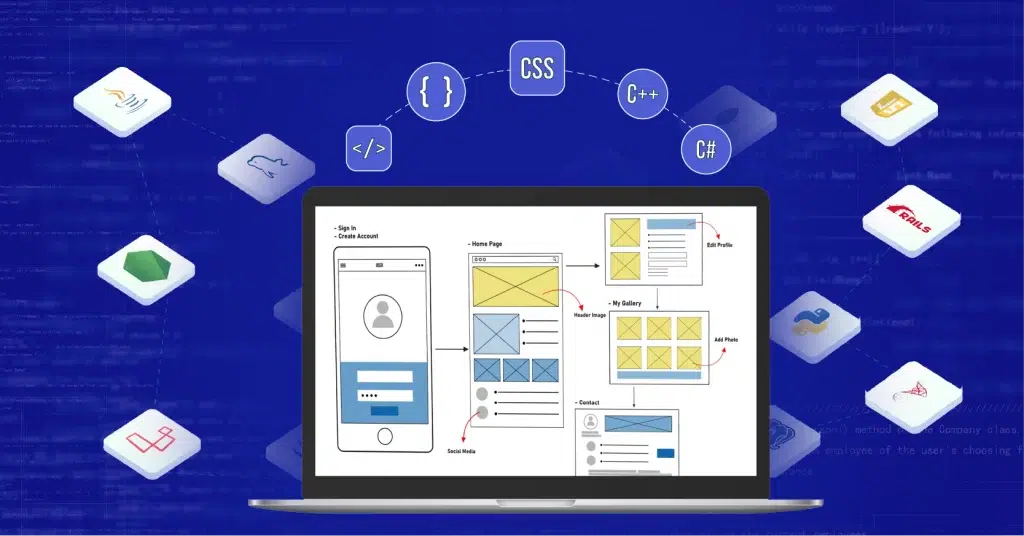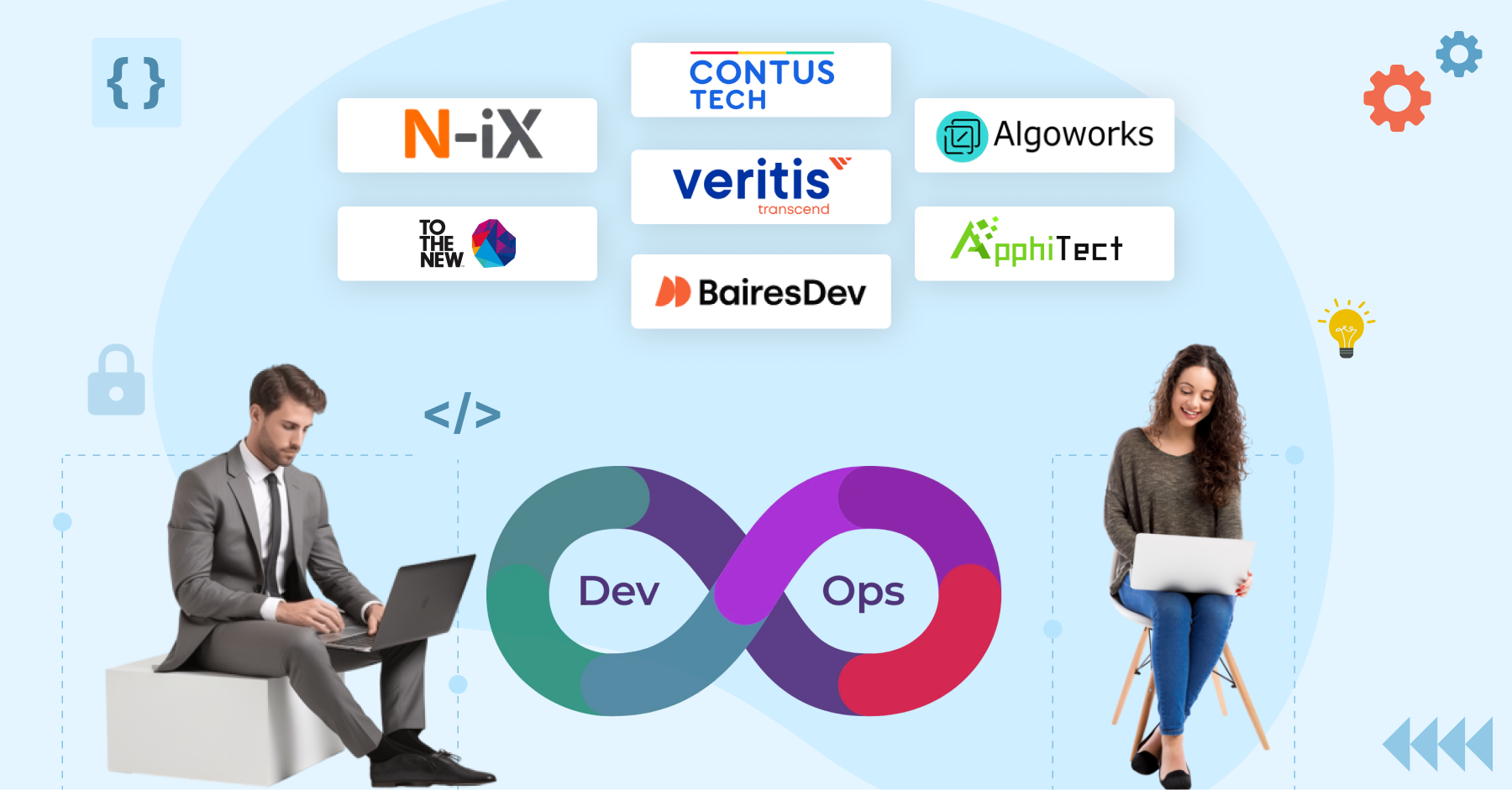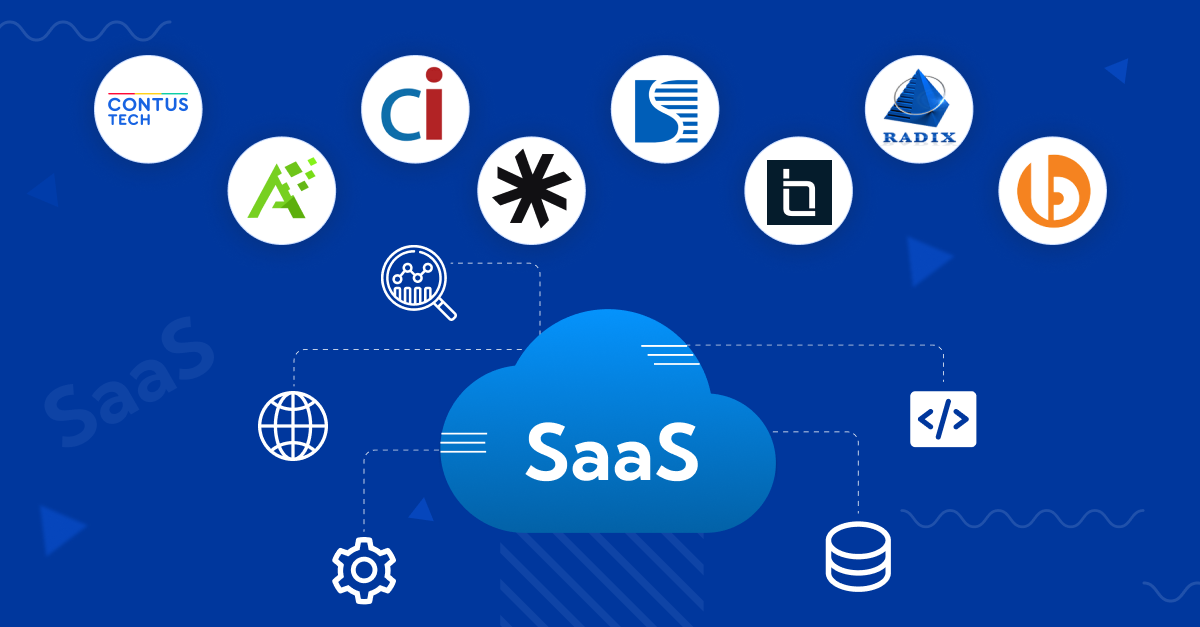Full Stack Mobile App Development: All You Need To Know

Nowadays, we use mobile apps for pretty much everything – working, playing games, online shopping, you name it. And we expect those apps to be fast, smooth, and easy to use on our phones or tablets.
Building high-quality apps that give users a great experience isn’t easy though. It takes lot of skills across different areas of development – from designing modern user interfaces to coding the behind-the-scenes logic that powers all the functionality.
That’s where full stack mobile app development comes in.
In this guide, we’ll go through all the key parts of full stack mobile development. We’ll cover the different technologies involved, best practices to follow, and the entire process from initial planning to launching and maintaining successful mobile apps.
Table of Contents
What Do You Mean by Full Stack Mobile App Development?
It means building a mobile application from start to finish. In simple words handling everything from the user interface that people interact with, to the server-side logic that powers all the functionality behind the scenes.
Full stack mobile developers can build comprehensive mobile applications, leveraging Java for back-end development and React (along with React Native) for front-end development.
A mobile full stack developer is a technical expert skilled in creating both the front-end and back-end of applications. They handle servers, databases, APIs, and user interfaces.
Generally, full stack means you understand the full lifecycle too – setting up development environments, using version control, automating builds and deployments, monitoring performance, updating apps on the stores, and keeping them secure over their lifetime.
What are the key Components of Full Stack Mobile App Development?
1. Frontend
This is the part of the app that people directly use – the visual element (UI) and the code that runs on the user device.
For mobile apps, front-end technologies include languages/frameworks like Java or Kotlin for Android, and Swift or React Native for iOS.
The frontend code handles rendering the UI elements, responding to user events and inputs, making API calls to the backend, and presenting data to the user in an intuitive way. Front-end developers ensure the app has a clean, modern UI with a great user experience.
Aside from coding the core functionality, the frontend is also responsible for handling device-specific capabilities like cameras, GPS, and optimizing for different screen sizes/resolutions.
2. Backend
The server side which focuses on the app’s core logic and exposes APIs for the frontend to integrate with is commonly known as the backend.
Some of the common backend languages like Java, Python, Node.js, Golang, etc.
The backend handles critical services like user authentication, data storage/retrieval from databases, integration with third-party services, push notifications, in-app purchases, content management, and more. Developers build RESTful APIs, handle sessions, cache management, and server-side rendering when needed.
Security, performance, and scalability are also major backend responsibilities to ensure the app can robustly handle increasing usage and traffic over time.
3. Database
In order to store, retrieve, and manage all the valuable data that powers app functionality, we need a database layer. Full stack mobile app developers work with various database technologies – both traditional SQL as well as NoSQL databases.
Some of the popular database options for mobile apps include PostgreSQL, MySQL, MongoDB, Cassandra, and Firebase’s Realtime Database.
Depending on needs, full stack mobile app developers may integrate a primary data store as well as separate caching layers or temporary data stores for blazing fast retrieval of frequently accessed data.
4. Version Control System
When you have multiple developers collaborating across the full stack, using a version control system like Git is an absolute must for streamlined code management and collaboration.
With a Git repository, developers can work on separate feature branches, commit changes, resolve merge conflicts, maintain separate environments (dev/staging/prod), roll back problematic code, and more.
Popular code hosting platforms like GitHub, GitLab, and Bitbucket provide version control capabilities as well as built-in issue tracking, continuous integration/deployment pipelines, and other DevOps automation features critical for mobile application developers engaged in full-stack mobile app development.
5. Deployment & DevOps
Speaking of deployment and DevOps, this is a key full stack area that ensures apps reliably make their way from development into production environments and then are robustly operated, monitored, and maintained over their lifetime.
Full stack DevOps may involve tools/practices like infrastructure-as-code, containerization with Docker, Kubernetes cluster management, cloud services, load balancing, automated testing/building/releasing, monitoring/logging with services like Datadog, incident response processes, and much more.
What Are The Benefits Of Full Stack Mobile App Development?
1. Wide Range of Services
- A full stack mobile app developer will have the ability to provide an end-to-end solution for mobile app projects.
- Instead of just front-end or back-end capabilities, they will bring expertise across the entire technology stack – client-side, server-side, databases, integrations, the whole nine yards.
- By understanding the complete picture and developers can architect robust, secure, and high-performing apps from the ground up.
2. Increased Efficiency
- Full stack skills drive efficiency in a big way. Since developers have a 360-degree view spanning all components,they can optimize how the different layers integrate and communicate with each other from the start.
- This unified perspective allows to develop mobile apps in a streamlined, efficient manner.
3. Flexibility and Adaptability
- The modern mobile app landscape is incredibly dynamic – new features, OS updates, third-party service changes, you name it. Security vulnerabilities and compatibility issues always seem to crop up.
- As a full stack mobile app developer, they have the flexibility to quickly adapt to evolving requirements.
- They don’t get boxed into a specific role or domain. If an Android update causes UI issues, you can jump in and fix it. If an API integration is causing service disruptions, you can troubleshoot it end-to-end. This versatility allows you to be highly responsive to changing needs.
4. Enhanced Problem-Solving Abilities
- Building a robust mobile app often requires solving multi-layered problems that span various technology disciplines.
- With full stack skills covering the entire stack, you have the unique ability to troubleshoot issues more holistically and find the root causes more effectively.
- For example, a performance issue could stem from client-side code inefficiencies, bloated server resources, caching layers, database queries or a combination of factors.
- A full-stack pro can analyze the bigger picture and pinpoint the bottleneck accurately instead of getting siloed.
5. Competitive Advantage
- Full stack expertise is an incredibly valuable and marketable skill. While there’s an abundance of specialists focused on either front-end or back-end development, true full stack developers who can comprehensively execute an entire app project are relatively rare and in high demand.
- This gives you a significant competitive edge, whether you’re a freelancer/consultant or part of an internal technology team. You become a critical asset capable of leading and delivering mobile initiatives from conception to launch.
6. Faster Development Time
Full stack mobile developers can develop mobile apps in a truly streamlined, efficient fashion from start to finish. There’s no need to hand off requirements between separate front-end and back-end teams, which often causes communication lags, knowledge gaps, and ramp-up time.
Recommended Reading
As a full stack mobile developer have end-to-end ownership over the entire process. This unified, holistic approach significantly compresses development timelines compared to projects pieced together across multiple specialized roles. Your apps get to market faster.
7. Cost-Effectiveness
- In addition to being a time-saver, full stack mobile app development is also cost-effective for mobile projects. Instead of having to hire and coordinate separate front-end and back-end developers (or even entire separate teams), full stack mobile app developer can be a one-person powerhouse handling it all.
- They get comprehensive skills without the overhead of multiple specialized roles. For freelancers/consultants, they become an extremely cost-effective option for clients.
8. Ownership and Accountability
- If you hire a full stack developer can take complete ownership and accountability over an entire mobile app project from end to end. There are no fragmented multi-party handoffs where work gets siloed or miscommunicated across teams.
- They will always have a single vision for the architecture and functionality across all layers. This end-to-end ownership drives accountability and as a result, they will provide a high-quality, high-performance, and secure final product.
Full Stack Mobile App Development – A Step-by-Step Process
We’re about to embark on a detailed journey through full stack development, covering everything from the initial planning stages to long-term maintenance.
This guide will break down each phase, offering insights and practical tips to help you understand and implement the complete development process.
5 phases of the full stack mobile app development process:
| Phase | Key Activities |
|---|---|
| Planning and Design | Gathering requirements, creating wireframes, designing UI/UX |
| Front End Development | HTML/CSS, JavaScript, frameworks like React or Angular |
| Back End Development | Server-side scripting, database management, APIs |
| Testing and Integration | Unit testing, integration testing, user testing |
| Deployment and Maintenance | Deployment, monitoring, updates and maintenance |
1. Planning and Design
Every successful project starts with careful planning and a clear design. This phase is like creating the blueprint for a building:
- Gathering Requirements: Understand what the client needs and expects.
- Creating Wireframes: Visual sketches that outline the structure and layout.
- Designing UI/UX: Ensuring the interface is user-friendly and visually appealing.
2. Front End Development
With the design in place, we move on to front end development, where the visual and interactive elements come to life:
- HTML/CSS: For building the structure and style of the webpage.
- JavaScript: To add interactive features and functionality.
- Frameworks like React or Angular: For creating dynamic, responsive applications.
3. Back End Development
Behind the scenes, back end development powers the application, handling data and server-side logic:
- Server-Side Scripting: Using languages like Python, Ruby, or Node.js to manage the server.
- Database Management: Storing and organizing data with SQL or NoSQL databases.
- APIs: Connecting the front end with the back end, enabling seamless communication.
4. Testing and Integration
Before launching, rigorous testing ensures everything works as expected:
- Unit Testing: Checking individual components for functionality.
- Integration Testing: Ensuring different parts of the system work together smoothly.
- User Testing: Gathering feedback from real users to catch any issues and improve usability.
5. Deployment and Maintenance
Finally, full stack developer deploy the application and ensure it runs smoothly over time:
- Deployment: Launching the application on a web server.
- Monitoring: Continuously checking performance and uptime.
- Updates and Maintenance: Regularly updating the system and fixing any issues that arise.
Each phase of full stack development is interconnected, ensuring the final product is robust, user-friendly, and maintainable.
By following these steps, full stack mobile app developers can create applications that not only meet client expectations but also delight users with seamless performance and functionality.
Conclusion
Now you get a clear understanding of full stack mobile app development.
The world of mobile apps continues to rapidly evolve, with users demanding increasingly rich, responsive experiences across devices. In this dynamic landscape, full stack mobile app developers are the versatile developers best equipped to create robust apps that meet these high expectations.
While mastering the full stack mobile app development is challenging, it opens up incredible opportunities. Your holistic knowledge lets you solve problems across any part of the stack.
Most importantly, you become self-sufficient to take an app idea and run with it independently all the way to delivering a high-quality final product.
If creating cutting-edge mobile experiences from the ground up excites you, riding the full stack mobile app developer wave could be your calling. With dedication to learning the core skills, you’ll be unstoppable at delivering the premium apps users crave.






I’ve been curious about diving into full stack mobile app development, and this breakdown really helps me understand what it entails. Exciting stuff!
Hi Ethan,
Glad the article helped! Full stack mobile development is exciting and rewarding. Good luck, and feel free to reach out if you need support!
Hats off to full stack mobile developers who can tackle both frontend and backend tasks. It takes a special kind of skill set to excel in both areas!
The benefits of full stack mobile development are really compelling. Efficiency, flexibility, and a holistic approach to problem-solving? Count me in!
Finding a skilled full stack mobile app developer can be a game-changer for any project. It’s impressive to see how they handle both front end and backend development seamlessly.
Hey Alex, you were absolutely right! Having a full stack mobile app developer on board can really streamline the development process and ensure a cohesive end product. Their ability to manage both the front end and back end is indeed impressive!
Front end mobile app development is where users interact directly, so getting it right is key. It’s great to see developers focusing on creating intuitive and visually appealing interfaces.
I’m impressed by the versatility of full stack mobile developers. They truly have the expertise to handle every aspect of the development process, from start to finish.
As someone interested in mobile app development, I found this article incredibly insightful. Full stack development seems like a challenging yet rewarding process. Can’t wait to dive deeper into this field!
Hey this article brilliantly highlights the importance of full stack mobile app development. It’s fascinating to see how developers can handle both front-end and back-end, ensuring a seamless user experience.
Excellent overview! The step-by-step process from discovery to maintenance really shows the comprehensive nature of full stack development.
Thanks! I’m glad you found the overview helpful.
I’m a backend developer with 1 year experience and i am looking to expand my skills, and this article gave me a clear roadmap on what to focus on for full stack development.
I love how this article breaks down the complexities of app development. It’s clear that full stack developers are the unsung heroes of the tech world.
Great to see languages like Kotlin and Java being mentioned for Android development. Full stack developers need to be versatile with their toolset.
This guide is very informative for me! I had no idea that a full stack developer could handle every part of the app process. It’s helpful to understand all the components involved.
The section on the benefits of full stack mobile app development hits hard to me. Cost-effectiveness and faster development time are huge advantages for small businesses looking to build apps.
The maintenance and updates part is so important! It’s good to know that ongoing support is a crucial part of the development process.
Great insights on the different technologies used in full stack development. It’s amazing how much work goes into creating a smooth user experience.
Just loved how you explained the role of databases in app development. Understanding SQL vs. NoSQL options helps in choosing the right technology.